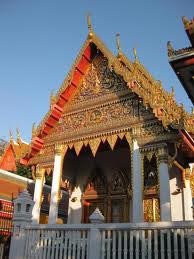 BANGKOK, 19th november — Two thousand fetuses from illegal abortion clinics have been found hidden at a Buddhist temple here, igniting calls for stricter abortion laws in a nation that is both socially conservative and sexually tolerant.
BANGKOK, 19th november — Two thousand fetuses from illegal abortion clinics have been found hidden at a Buddhist temple here, igniting calls for stricter abortion laws in a nation that is both socially conservative and sexually tolerant.
An undertaker in Bangkok told police officers investigating complaints of an overwhelming stench that the fetuses were supposed to have been cremated, but that he had begun to store them in the mortuary after the temple’s crematorium broke down, according to local news reports.
He said he poured gasoline around them to mask the odor, and finally when the numbers grew too large, he dug a pit to bury them. But neighbors complained, and the stored fetuses were discovered on Tuesday.
The police have arrested two undertakers and a woman who confessed to delivering fetuses to the temple from several clinics. She said she was paid as much as 500 baht, about $16, per delivery and that she paid the undertaker as much as 200 baht to dispose of them. Buddhist cremations are generally performed at temple crematoriums.
The woman also said she had performed illegal abortions and was raising eight children who had survived the procedure, according to local newspaper accounts.
Explaining her adoption of these children, The Nation newspaper quoted her as saying she rescued them after failed abortions because “if the kids won’t die, there’s no need to kill them.”
The case has been a sensation in the local press and has led to calls for stronger laws controlling abortion, which is legal only in cases or rape or incest or if the mother’s life is in danger.
Thailand is a Buddhist country, and many people are generally conservative on sexual matters. Though there is a thriving sex industry here and birth control is widely available, advocates for safe sex say many young people are ill informed on the subject.
On Tuesday, the police said they had discovered 348 fetuses, but the number grew as they continued to search, and on Friday they reported that the total had risen to more than 2,000.
After the discovery, the police raided clinics in the area and told local reporters they had found 20 clinics performing illegal abortions.
Responding to the calls for stronger laws against illegal abortions, Prime Minister Abhisit Vejjajiva said that although the case highlighted the extent of the problem, the current legislation was “flexible enough.”
Under Thai law, a person who performs an illegal abortion can face up to five years in prison and a fine of up to 10,000 baht, or about $333. The penalty increases if the abortion seriously injures the pregnant woman.
The public health minister, Jurin Laksanavisith, said that one million Thai women became pregnant each year, with 60,000 suffering miscarriages and 80,000 having legal abortions. He gave no estimate of the number of illegal abortions.
The Public Health Ministry ordered a nationwide crackdown on clinics that perform illegal abortions after the discovery at the temple.
The woman under arrest, Lanchakorn Janthamanas, 33, was quoted in newspapers as saying that she learned to perform abortions by watching the doctor and the nurse with whom she used to work. Most of her customers were students and teenagers, she said.
She told the police that she earned 5,000 baht for an abortion on a woman up to three months pregnant and 30,000 baht for a woman more than five months into her term, The Bangkok Post reported.
The Nation quoted Ms. Lanchakorn as telling the police that the fetuses were taken secretly to the crematorium and were hidden with other bodies to be cremated.
She said that without knowing it, monks would perform prayers for the fetuses along with the prayers for those being cremated.
Investigators said they had questioned the abbot and monks at the temple, Wat Phai Ngerm Chotanaram, and concluded that they were not involved in the case, the newspapers reported.
Seth Mydans
Source: nytimes.com




